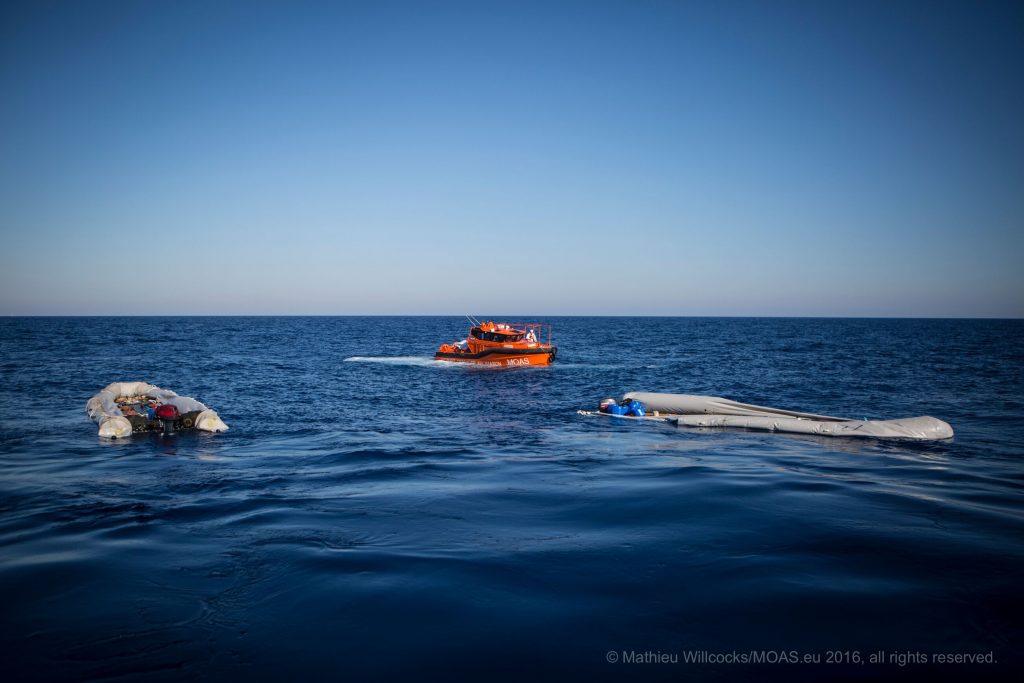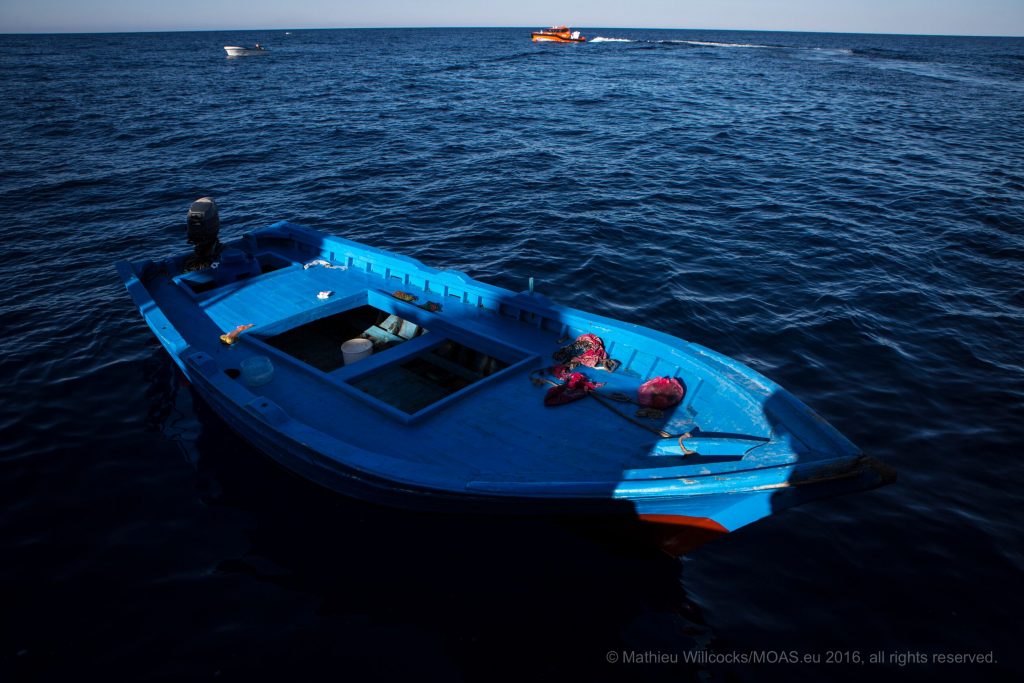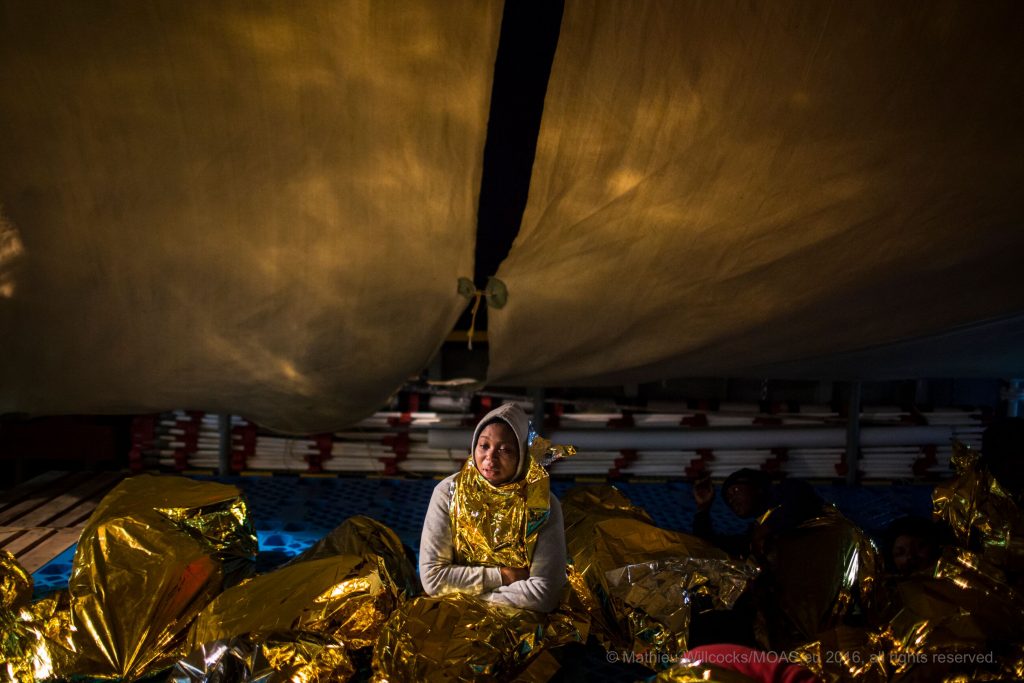April is well known to often be one of the busiest months for migrant crossings in the Mediterranean, as the temperatures start to warm and the opportunities to take this perilous route become increasingly frequent. In fact, in 2015 a total of 1,222 people were recorded dead or missing in the Mediterranean during this month and in 2016 this figure stood at 630. In 2017 MOAS, determined to be at sea from the start of the month to avoid another high death toll, rescued over 1800 people in just one weekend
Sadly, in 2020 we have witnessed the trend continue with over 1000 people attempting to flee civil war in Libya via the Mediterranean route. However, in the face of the global coronavirus pandemic, the virus has been utilised as a justification to prevent search and rescue operations from Europe, with migration being used as a scapegoat during this time of uncertainty.
Earlier this month, both Malta and Italy announced they would be closing their ports to migrant arrivals in light of the current crisis. Both countries stated their main motivation was fuelled by their concerns surrounding COVID-19 and fears that open borders would lead to further spread of the virus and thus more unnecessary deaths.
However, it seems that these policies, instead of considering the rights of the migrants in question and, instead of using this opportunity to consider alternative ways of protecting both migrants and host communities during this time, have turned a blind eye to those stranded at sea with leaders taking the current crisis as an excuse to absolve themselves of any responsibility in this humanitarian crisis within a crisis.
Cases this month
There have been numerous cases to highlight this month including the German search and rescue vessel the Alan Kurdi, which was stranded at sea for over 10 days after rescuing 150 migrants before they were allowed to safely disembark.
Meanwhile, the Aita Mari was similarly abandoned by the Maltese and Italian authorities when, after rescuing 43 at sea, it was not granted safe harbour for an entire week despite the fact the vessel was carrying children, a pregnant woman and others in extremely vulnerable conditions.
By turning a blind eye, Malta and Italy have ignored any legal or moral obligation to protect the lives and human rights of those stranded in their waters. And yet, what have they achieved by turning their back on migration during this time?
The targeting of search and rescue vessels and preventing them safe harbour has done nothing to stop the flow of migrants from Libya. There are no alternatives for migrants stranded in horrific conditions in Libyan detention centres. Therefore, as long as conflict and unlawful detention in the country continues, migration across the Central Mediterranean route will not cease – even during a global crisis like the one we are currently facing.
Moreover, if the harsher restrictions imposed this month are to be seen as preventative measures to stunt the spread of the virus and mitigate loss of human life, then Malta and Italy have surely both made extremely flawed decisions as proven by the most recent tragedy for the Med.
This irony has been played out, and has cost the lives of migrants this month, as many have died or been lost at sea as a result of a refusal to rescue those in distress. On April 15th, five bodies were found on board a migrant vessel which has previously been left stranded in Maltese waters. The 51 survivors of this vessel were later transferred back to detention centres in Libya according to UNHCR.
It goes without saying that everyone is concerned about public health at this uncertain time and we should, indeed, take extra precautions to ensure the safety of our communities wherever we are. However, ignoring distress calls and demonising SAR vessels in the Mediterranean cannot be a solution to fears surrounding the current crisis.
We cannot let coronavirus be used as an excuse to perpetuate this cycle of neglect for desperate migrants in distress in the Mediterranean.
Instead, greater efforts must be made to ensure safe and humane disembarkation and to continue the call for #SafeandLegalRoutes which are needed more than ever as the current pandemic puts refugees in a uniquely and disproportionately vulnerable position, often lacking access to healthcare and other basic services due to their displacement.
Therefore, as always, a coordinated response to both migrant crossings in the Mediterranean and the current pandemic is required across all states to prevent further human rights abuses and to ensure the lives of those in desperate situations are not side-lined during this challenging time, while still acknowledging the increased need for post-disembarkation measures that protect the winder community.
If you are interested in the work of MOAS and our partners, please follow us on social media, sign up to our newsletter and share our content. You can also reach out to us any time via [email protected]. If you want to support our operations, please give what you can at www.moas.eu/donate.



